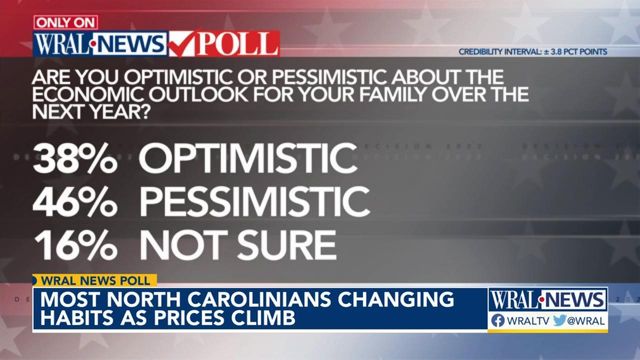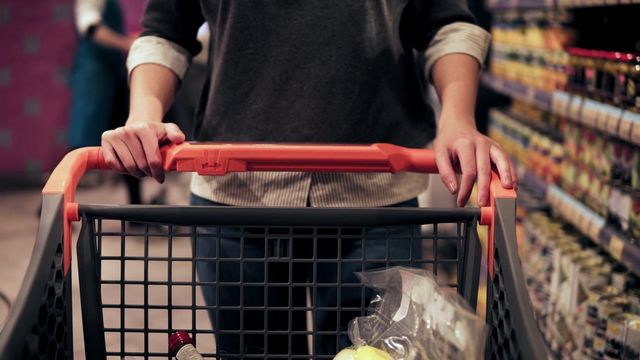Wary about inflation, interest rates, North Carolinians adjust lifestyles to cut costs
A WRAL News poll shows that residents are worried about the economy and how it might affect their families. Most North Carolinians are adjusting their lifestyles to deal with rising costs.
Posted — UpdatedNorth Carolinians are largely downbeat on the economy and how it might affect their families over the next year, according to a WRAL News poll. And as inflation puts a squeeze on household budgets, many in the state say they’re cutting back on some activities to accommodate cost increases.
Economic strains
“Gas, food, clothes, even mortgage. It’s getting crazy,” said Ronnie Enoch, a Morrisville resident who says he's reprioritizing his spending. “I am looking at things I have to do to change. I have to take money from over here to pay bills over there.”
Consumer prices increased 8.6% in May, the fastest pace since 1981 and faster than April’s year-over-year surge of 8.3%, the Labor Department said Friday.
Optimistic jobs reports for North Carolina, plus low unemployment and strong consumer spending in recent months have illustrated the resilience of state’s economy. But the WRAL News poll’s results could foretell a shift.
Changing habits
To deal with the rising costs, many in the state say they are driving less, cutting back on eating out and participating fewer activities or events, the poll shows. A sizable number of residents are also scaling back at the grocery store and canceling or delaying travel plans.
Garrett Cullen of Cary says he and his family of four are hunting for discounts, being more judicious about driving, monitoring credit-card spending and eating out less. He’s worried about the direction of the economy and what the second half of the year might bring.
“What’s going to happen when we get to Christmas,” he said. “Are people going to be tapped out? Are they going to be ready to buy gifts and all that stuff by then? We’ll have to see. It’s going to depend on where gas prices are.”
The results show that Democrats and Republicans have been affected similarly by inflation, but they had different views on what the future has in store.
Half of Democrats said they were optimistic about the economic outlook for their families in the next year, while just 29% of Republicans felt similarly. Meanwhile, 61% of Republicans and 32% of Democrats said they were pessimistic. Only one in ten respondents said they weren’t making any changes in response to higher costs.
In response to rising costs, 72% of respondents said they’ve cut back on eating out, 61% have driven less and 60% have scaled back on activities and events. Forty-five percent reported canceling or delaying vacations and travel, while 44% said they’ve cut back on food and groceries.
Legislative efforts
None of those proposals is likely to win support from Republican legislative leaders, who control the General Assembly.
Sen. Jay Chaudhuri, D-Wake, said that’s unfortunate since tax cuts often don't help low-income households.
“Inflation is contributing a lot to the needs we’re hearing from families,” Chaudhuri said at the Wednesday news conference. “Those are real pieces of legislation that I think can impact the bottom line and the crunch that families and children are feeling.”
• Credits
Copyright 2024 by Capitol Broadcasting Company. All rights reserved. This material may not be published, broadcast, rewritten or redistributed.






